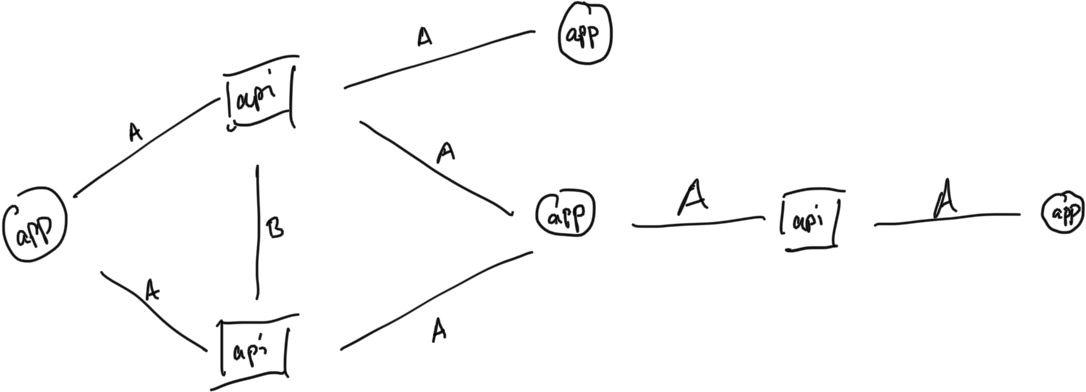
Week 6: Evalulating the HinDroid Result
NOTE: Due to the Wednesday holiday, this week we will be meeting Friday at 9AM PST.
Topics
This week’s assignments will guide you through the following topics:
- Review SVMs and the kernal trick.
- Implement the basic Hindroid Malware Classifier.
- Assess different choices of kernel.
Reading
Please read the following:
- Hindroid sections 3 and 4, paying particular attention to the table of results evaluating the different metapaths.
- Review this tutorial. It is a succinct 5-min read that should help your revise SVM. Assume red-triangles are malwares and blue-circles are benign apps.
- For more review on SVMs, this is really a great lecture and these are some great slides.
Tasks
Complete the following tasks:
- Develop code that can calculate the commuting matrices formed by
products of
A,B,P. (Refer to week 05 for a hint on sparse matrices!) - Implement the Hindroid Malware classifier for various kernels on a
dataset from DSMLP.Try training models with kernels:
AA^T,ABA^T, APA^T,APBP^TA^T`. See implementation note below. - Evaluate the performance of the above classifiers on different Malware types. (How are you splitting train and test?)
Note on Implementation
Hindroid’s model is an SVM classifier with a custom kernel. Recall that SVMs only need the dot-product of the data-points for classification, in our case, this will be the commuting matrix Mp[i][j], where i and j are the indexes corresponding to the Apps.
You can use scikit’s SVM for your assignment. As explained above you are going to assume that you already have the pre-computed kernel matrix in the form of Mp. Hence, you will need to use custom kernels.
More specifically, you can directly use Gram-Matrix.
Class Notes
Weekly Questions
Answer the following questions on Canvas:
- What properties do these different meta-paths capture in the data?
- Why do all of the meta-paths in the Hindroid kernels start and end with the adjacency matrix A?
- Use the test data to train a classifier with kernel
ABA^Tand compute the resulting f1-score.